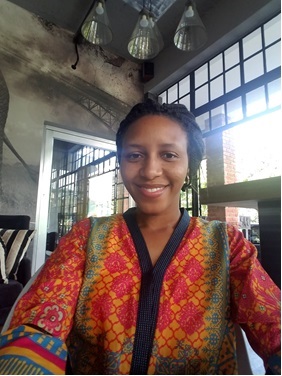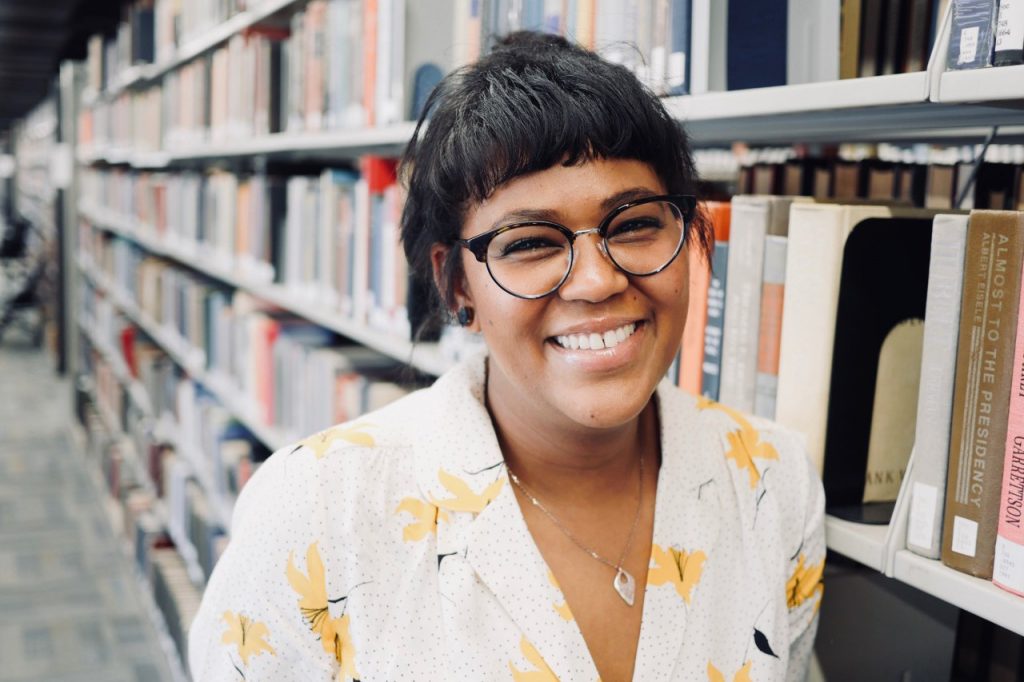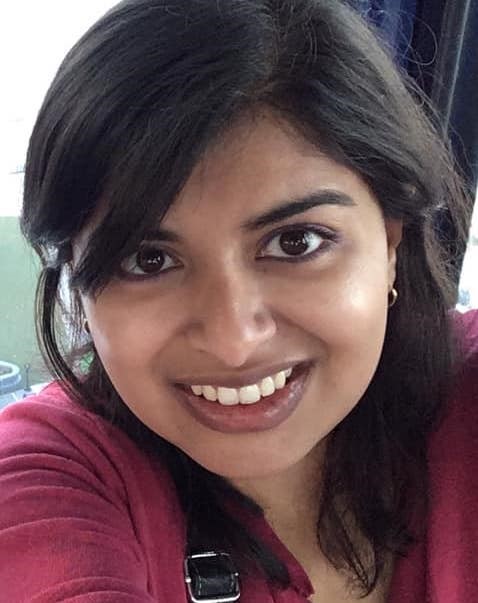The Alternative Voices Feature is brought to you by the NMRT’s Membership, Diversity, Promotion, and Recruitment Committee. It is meant to give a platform to the voices of librarians from underrepresented communities in the library field. The format of the feature is a journalistic question and answer format. It provides information that the librarian wants people to know about them, plus their thoughts on the current state of the field of librarianship.

Name – April Moyo
City & State – Charlotte, NC
Position Title – Librarian at Central Piedmont Community College
Length of time in the library field – 6 years
Tell us a little bit about your background. Where did you attend college? What degrees do you have? What programs (undergraduate or graduate) prepared you for your current position? Tell us about your position and what you do? What is your definition of diversity, or equity or inclusion?
I started my career as a classroom teacher in DC Public Schools, then moved on to working in Montgomery County Public Schools in Maryland (still teaching) as well as becoming a Library Media Specialist, totaling 11 years in K-12 public schools. I transitioned from teaching in a traditional classroom setting to becoming a school librarian after attending The Catholic University of America in Washington, DC for, my Masters of Science in Library and Information Science. This degree, as well as my background in education, prepared me for my current role as the Campus Library Manager at the Harris Campus of Central Piedmont Community College. As the library manager, my work includes the overall operations of the library, leading and managing a small staff, serving students, faculty, and campus staff, collaborating with colleagues and committees regarding library initiatives, and providing reference and instructional services to students, via in-person or embedded classes online. I also work to plan and prepare for events, exhibitions, and learning programs that help to tell our story–the library as a service, a place, and a resource. I work to ensure the library has a positive reputation as a campus cultural institution focused on student success. I think of diversity, equity, and inclusion as essential to our work as librarians. These concepts steer decisions we make in programming, collection development, examining accessibility to materials and spaces, and providing resources and services for the communities we serve nearby and at large.
How are you becoming or staying involved with the wider profession?
I have joined several professional organizations in hopes that it would help me keep abreast of current issues and trends, and expose new opportunities in the field. Most recently, I have joined the ALA communications committee and became a contributor to WOC+Lib. I am also a member of the Metrolina Library Association (MLA) and the Black Caucus of the American Library Association. Attending the MLA Conference in 2018 was great. It is a smaller conference, with a more intimate environment than most conferences, and I was able to meet and connect with other librarians in North Carolina. I continuously seek conference opportunities, whether in-person or via the web, to keep learning.
Do you have any advice for new graduates applying to jobs?
Volunteer in various library settings so you get a good sense of what different settings offer and what a typical day might look like in those settings. Perhaps apply for a residency program, or shadow someone in the role you think you might want so that you can gain some insight into the daily workflow versus classroom/textbook knowledge. Not every opportunity will be paid; however, the experience it provides will be invaluable.
Now more than ever, it is important for libraries to seek out diverse materials to add to their collection but some may have difficulty locating materials that accurately reflect the voice of a specific community. What resource would you recommend that librarians use to locate the most up-to-date and relevant sources?
My campus has a program for Early Childhood Education; therefore, I monitor a small children’s literature collection in my library. In regards to children’s literature, a few sources for locating relevant, diverse materials are “We Need Diverse Books” and “Diverse Book Finder.” No matter the genre, I also follow authors, illustrators, other librarians, publishers, and other library and book-related institutions on Twitter for quick information on new and upcoming releases. This helps me to keep a running list of work to research later and while I am working on collection development. Social media is a great tool for grabbing small “bytes” of information to further your knowledge in many areas.
What trends are most impacting the field right now?
Looking forward, recently I have read a lot about libraries’ use of space and how their roles in the community might change–to include becoming a single point of contact for new and perhaps non-traditional roles (childcare space, social work services, multimedia editing tools, responding to the Opioid crisis, providing life-skills and life re-entry services, etc.) What do communities want in their libraries versus what we think they want?
What’s the best lesson you’ve learned on the job?
I’ve learned that effective communication, whether informal or formal, in-person, via email, or meetings, is crucial to productivity and professional relationships with others, especially when you work with so many different people who serve various roles, and you also have so many modes of communication available today.
What is the strangest question you’ve ever been asked while working on the reference desk?
In a previous position as a school media specialist, a student asked me if I could fix their (broken) sandals.
I’m on Twitter @libonthemove.



